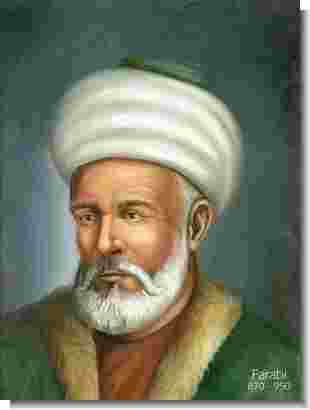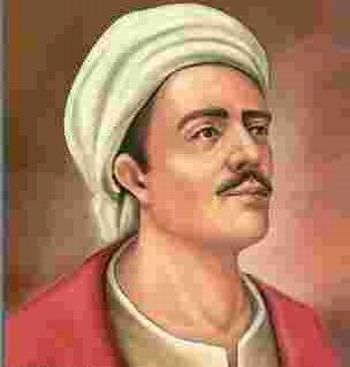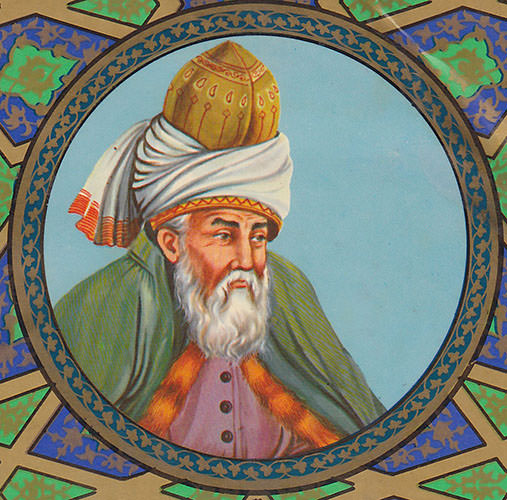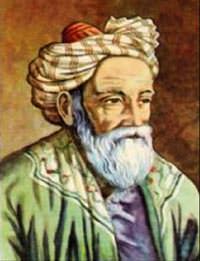
Abu Nasr Mohammad Ibn al-Farakh al-Farabi was born in a small village Wasij, near Farab in Turkistan in 259 A.H. (870 A.D.). His parents were originally of Persian descent, but his ancestors had migrated to Turkistan. As a philosopher and scientist, he acquired great proficiency in various branches of learning and is reported to have been an expert in different languages.
Farabi travelled to many distant lands and studied for some time in Damascus and Egypt, but repeatedly came back to Baghdad, until he visited Saif al-Daula’s court in Halab (Allepo). He became one of the constant companions of the King, and it was here at Halab that his fame spread far and wide. Farabi contributed considerably to science, philosophy, logic, sociology, medicine, mathematics and music. His major contributions seem to be in philosophy, logic and sociology and, of course, stands out as an Encyclopedist. As a philosopher, he may be classed as a Neoplatonist who tried to synthesize Platonism and Aristotelism with theology and he wrote such rich commentaries on Aristotle’s physics, meteorology, logic, etc., in addition to a large number of books on several other subjects embodying his original contribution, that he came to be known as the ‘Second Teacher’ (al-Mou’allim al-Thani) Aristotle being the First. One of the important contribu- tions of Farabi was to make the study of logic more easy by dividing it into two categories, Takhayyul (idea) and Thubut (proof).
http://www.trincoll.edu/depts/phil/philo/phils/muslim/farabi.html
One of Farabi’s views that has an important place in Turkish-Islamic thought is his perception of morality and politics. According to him, happiness is a purpose that everybody desires to have and it is “absolute good” due to its nature. Every action which leads human beings to this purpose and will make them happy is “good” and the action that prevents him from becoming so is “bad” and human beings have the potential to distinguish what is good and what is bad. Since wisdom can comprehend what is good and what is bad, human beings should have a balanced freedom in the field of morality.
http://www.transanatolie.com/english/turkey/Turks/Turkish%20Philosophers/farabi.htm




Leave a Reply
You must be logged in to post a comment.